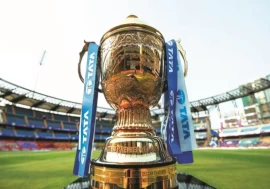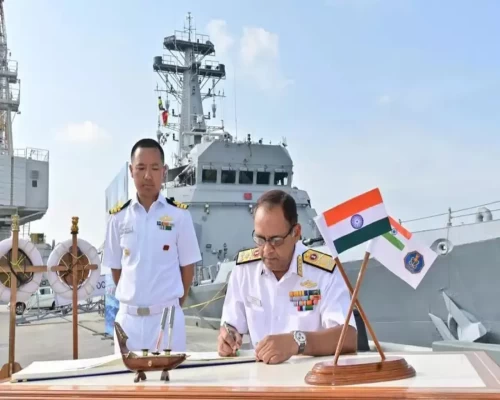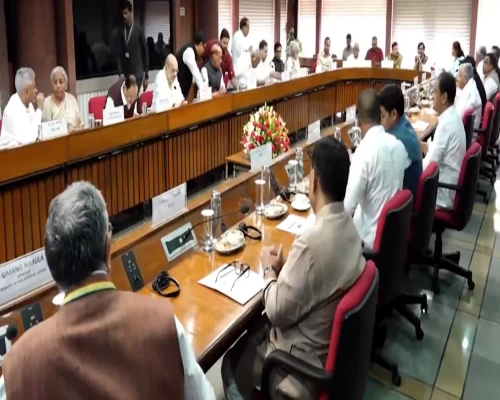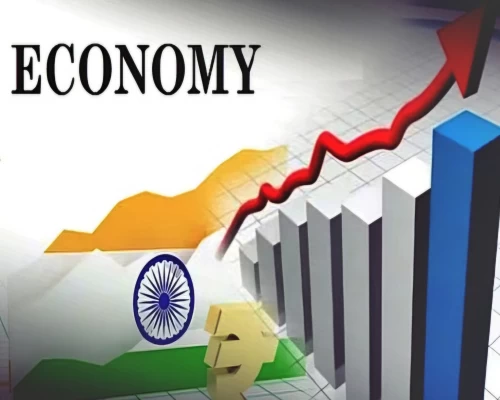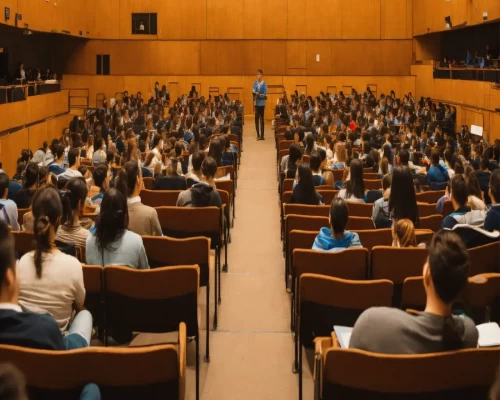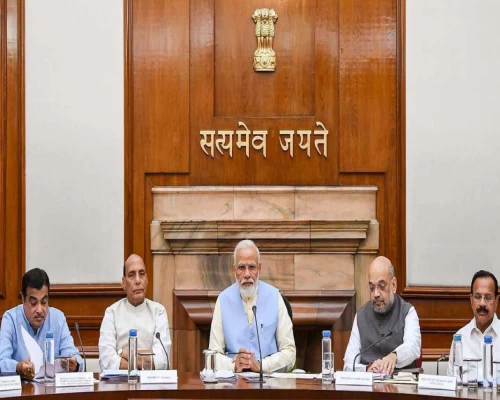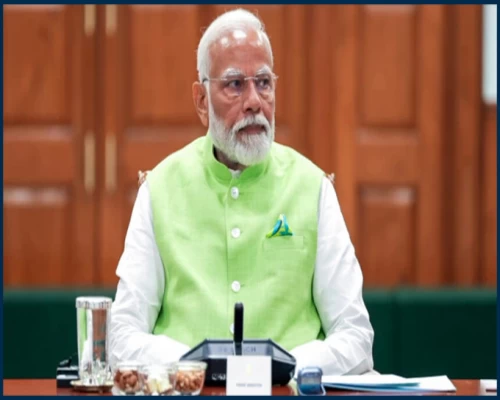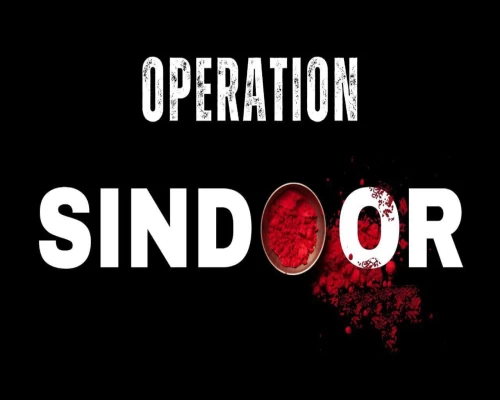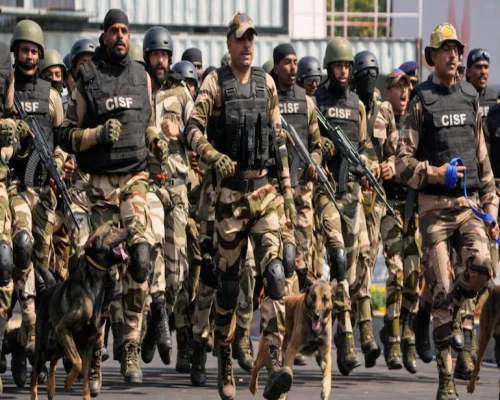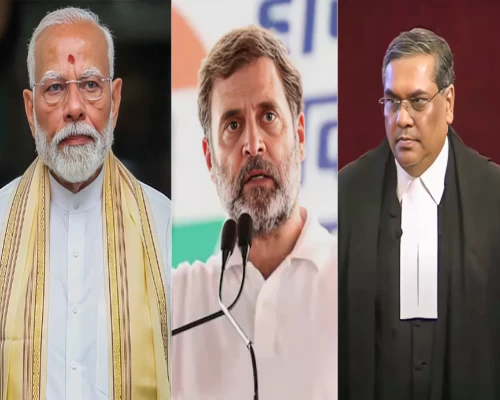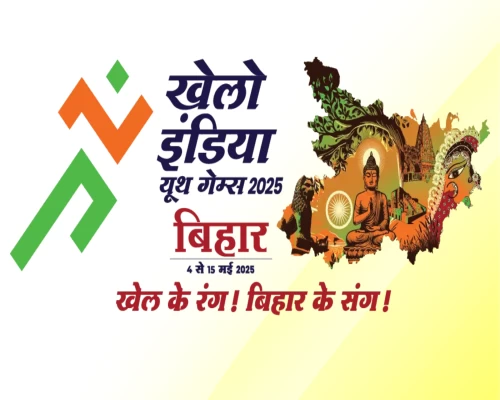_1000_x_500.webp)
New Delhi: Prime Minister Narendra Modi, in his first podcast, interacted with entrepreneur and investor Nikhil Kamath about various topics ON Friday. In a candid conversation, when asked about his childhood, Prime Minister Modi shared his early life experiences, highlighting his roots in the small town of Vadnagar in Mehsana district, North Gujarat. He remarked that Vadnagar, a Gaekwad State town, was known for its commitment to education, with essential facilities like a pond, post office, and library. He reminisced about his school days at Gaekwad State Primary School and Bhagwatacharya Narayanacharya High School. He shared an interesting anecdote about how he once wrote to the Chinese embassy about a film on Chinese philosopher Xuanzang, who had spent significant time in Vadnagar. He also mentioned an experience from 2014 when he became the Prime Minister of India and Chinese President Xi Jinping expressed a desire to visit Gujarat and Vadnagar, citing a historical connection between Xuanzang and both their hometowns. This connection highlighted the shared heritage and strong ties between the two nations.
Touching upon his student life, Modi described himself as an average student who was not particularly noticed. He mentioned his teacher, Veljibhai Chaudhary, who saw great potential in him and often expressed his expectations to Modi's father. Veljibhai noted that Modi grasped things quickly but then got lost in his own world. The Prime Minister remarked that his teachers were very affectionate towards him, but he was not interested in competition. He preferred to pass exams without much effort and was more inclined towards various activities. He emphasized that his nature was to quickly pick up new things and engage in different activities.
Prime Minister Modi shared his unique journey, having left home at a very young age and losing contact with his family and friends. He remarked that when he became Chief Minister, he had a few desires, including reuniting with his old classmates and invited around 30-35 friends to the CM House, but felt that they saw him as the Chief Minister rather than their old friend. The Prime Minister also expressed that his wish was to publicly honour all his teachers who had contributed to his education. He organised a grand event to honour around 30-32 teachers, including his oldest teacher, Rasbihari Manihar, who was 93 years old at the time. This event was attended by the Governor and other esteemed personalities of Gujarat. Additionally, he invited his extended family to the CM House to reconnect and introduce them to each other. He also invited families who had provided him meals during his early days in the RSS. These four events were significant moments in his life, reflecting his gratitude and desire to stay connected with his roots.
The Prime Minister remarked that he did not follow any guiding philosophy and was content with passing exams without striving for higher marks. He mentioned his tendency to engage in various activities spontaneously, participating in competitions like drama without much preparation. He shared an anecdote about his physical training teacher, Parmar, who inspired him to regularly practise Malkhamb and wrestling. Despite his efforts, he did not become a professional athlete and eventually stopped these activities.
When asked about what can be considered as a talent to a politician in politics, Modi replied that becoming a politician and becoming successful in politics were two different things. He remarked that dedication, commitment, and empathy towards people's joys and sorrows are essential for success in politics. He highlighted the importance of being a good team player rather than a domineering leader. The Prime Minister reflected on the Indian independence movement, noting that many individuals contributed to the cause without entering politics. He emphasized that post-independence leaders emerged from the freedom struggle with a deep sense of dedication to society. Modi emphasized, "Good people should keep coming into politics with a mission and not ambition." Quoting the example of Mahatma Gandhi, Modi said Gandhi's life and actions spoke volumes, inspiring the entire nation. The Prime Minister emphasized that effective communication is more important than eloquent speeches. He highlighted Gandhi's ability to communicate powerful messages through his actions and symbols, such as the contrast of carrying a tall staff while advocating non-violence. The Prime Minister emphasised that true success in politics comes from living a life of dedication and effective communication, rather than relying solely on professional skills or eloquence.
Modi reiterated the need for one lakh young individuals to join politics with a mission-driven approach rather than ambition. He remarked that while entrepreneurs focus on growth, politics requires self-sacrifice and putting the nation first. He highlighted that society accepts those who prioritise the nation and that political life is not easy. He added that life in politics was not easy. The Prime Minister shared an anecdote about Ashok Bhatt, a dedicated worker who lived a simple life despite being a minister multiple times. He added that Bhatt was always available to help, even in the middle of the night, and lived a life of service without personal gains. He said that this example shows the importance of dedication and selflessness in politics. The Prime Minister stressed that politics is not about fighting elections alone but about winning the hearts of common people, for which one has to live amidst them and connect with their lives.
“My life is my biggest teacher,” said Modi when asked about how life has been shaped by circumstances, referring to his challenging childhood as his "University of Adversity." He remarked that witnessing the struggles of women in his state, who walked kilometres to fetch water, inspired his commitment to ensuring water accessibility post-independence. The Prime Minister emphasized that while he does not claim ownership of plans, he dedicates himself to realising dreams that benefit the nation. He shared his guiding principles from his tenure as Chief Minister: working tirelessly, not seeking personal gain, and avoiding intentional wrongdoing. He acknowledged that mistakes are human but stressed his commitment to acting with good intentions. Recalling his speech as the Chief Minister of Gujarat, Modi said that he will not shy away from hard work, he will not do anything for his personal self and he will not make mistakes with bad intentions and considered these three rules as the mantra of his life.
Concluding the interaction, Modi addressed the youth and women of the nation, emphasizing the importance of leadership and participation in politics, and encouraged young women to take advantage of the 50% reservation in local governance and prepare themselves for leadership roles, with proposed 33% reservation in legislative assemblies and parliament. The Prime Minister urged the youth to not view politics negatively and to engage in public life with a mission-driven approach. He emphasized the need for leaders who are creative, solution-oriented, and dedicated to the nation's progress. He highlighted that the youth of today will be in key positions by 2047, leading the country towards development. He clarified that his call for youth participation is not limited to any specific political party but is aimed at bringing fresh perspectives and energy into all political parties. He stressed the importance of young leaders in driving the nation's growth and ensuring a bright future for India.
BI Bureau


